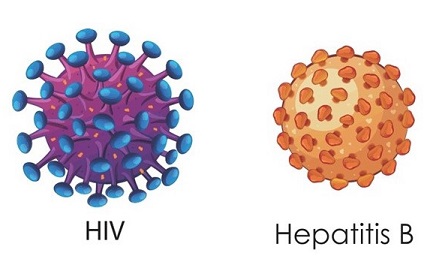U.S Medical News: Shocking Revelations That About 450 Patients From Salem Hospital, Massachusetts Were Possibly Exposed To HIV And Hepatitis!
Nikhil Prasad Fact checked by:Thailand Medical News Team Dec 02, 2023 1 year, 4 months, 2 weeks, 2 days, 4 hours, 18 minutes ago
U.S Medical News: In an alarming and deeply concerning revelation, it has come to light that nearly 450 patients at Salem Hospital in Massachusetts may have been exposed to the life-threatening viruses, hepatitis B, hepatitis C, and HIV, over the past two years. This potential exposure has sent shockwaves through the medical community, prompting an urgent reevaluation of patient safety protocols. The incident occurred during the administration of intravenous (IV) medications, specifically affecting individuals undergoing endoscopy procedures, thereby raising questions about the adequacy of safeguards in place during medical treatments.
https://kecheslaw.com/news/cases/class-action-against-mass-general-brigham-after-patients-exposed-to-hiv-hepatitis/

The Incident Unraveled
The revelation surfaced earlier this year when Salem Hospital discovered that IV medications had been administered improperly, potentially exposing patients during endoscopy procedures. Endoscopy, a medical examination involving the insertion of a tube-like instrument into the body for closer examination, was the context in which these potential exposures occurred. Salem Hospital promptly corrected the procedural lapses upon discovery and has since expressed deep regret for any impact on the affected patients.
Immediate Response and Investigations
Salem Hospital's response to the potential exposure was swift and comprehensive. Patients who may have been affected were notified through multiple channels, including the hospital's online portal, Patient Gateway, and email. To address concerns and queries, the hospital established a clinician-staffed hotline, offering immediate assistance to those seeking information. The institution initiated rigorous testing for hepatitis B, hepatitis C, and HIV, standard procedures for potential exposures of this nature, to ascertain the extent of the issue.
Collaboration with Public Health Authorities
Recognizing the gravity of the situation, Salem Hospital collaborated closely with the Massachusetts Department of Public Health to conduct a thorough investigation and manage the fallout. According to various local
U.S. Medical News coverages, the state health department, following an onsite examination, concluded that the risk of infection was assessed to be very low. The ongoing investigation, as of now, has not revealed any evidence of infections resulting from the exposures. Both the hospital and the state health department are actively working together to ensure that affected patients receive the necessary support, including free screenings and follow-up care.
Comparative Analysis with Past Incidents
While incidents of potential exposure to bloodborne pathogens due to lapses in hospital practices are relatively rare, they are not unprecedented. In 2018, over 3,000 patients in a New Jersey surgery center faced a similar risk of exposure to hepatitis B, hepatitis C, and HIV due to lapses in sterilization procedures. Similarly,
in 2008, an outbreak of acute hepatitis C was linked to an endoscopy center in Las Vegas, underlining the critical importance of stringent adherence to infection control measures within healthcare facilities.
Insights from Medical Experts
Dr Shira Doron, Chief Infection Control Officer for the Tufts Medicine health system, provided valuable insights into the rarity of patient exposure incidents due to lapses in hospital practices. She highlighted that healthcare workers are more frequently exposed to bloodborne pathogens due to procedural injuries, emphasizing the stringent sterilization procedures in place to prevent such incidents. Regular unannounced surveys are conducted to ensure hospitals adhere to the required infection control protocols, further underlining the commitment to patient safety.
Preventive Measures and Protocols
To mitigate the risk of exposing patients to diseases such as hepatitis B, hepatitis C, and HIV, healthcare workers are strongly urged to strictly adhere to hygiene and sanitation protocols. It is imperative never to reuse needles and syringes on more than one patient. Additionally, workers should avoid placing caps on used syringes with needles to prevent misunderstandings among staff, reducing the potential for errors in medical procedures.
Patient Safety Measures
Despite the potential exposure at Salem Hospital, officials maintain that the likelihood of actual infections is deemed "extremely small." As of now, no infections have been reported, and the hospital continues to provide support and screenings to potentially affected patients. For those who have not been notified, there is no need for immediate concern, according to the hospital's spokesperson.
Conclusion
The potential exposure of nearly 450 patients to hepatitis B, hepatitis C, and HIV at Salem Hospital in Massachusetts is an alarming incident that necessitates a thorough examination of existing healthcare protocols and patient safety measures. While the risk of infection is currently assessed as low, this incident underscores the need for constant vigilance and adherence to stringent infection control measures in healthcare settings. As investigations continue, the medical community awaits further insights into the circumstances surrounding this alarming incident, with the hope that lessons learned will lead to more robust safeguards to prevent such occurrences in the future.
For the latest
U.S. Medical News, keep on logging to Thailand Medical News.
